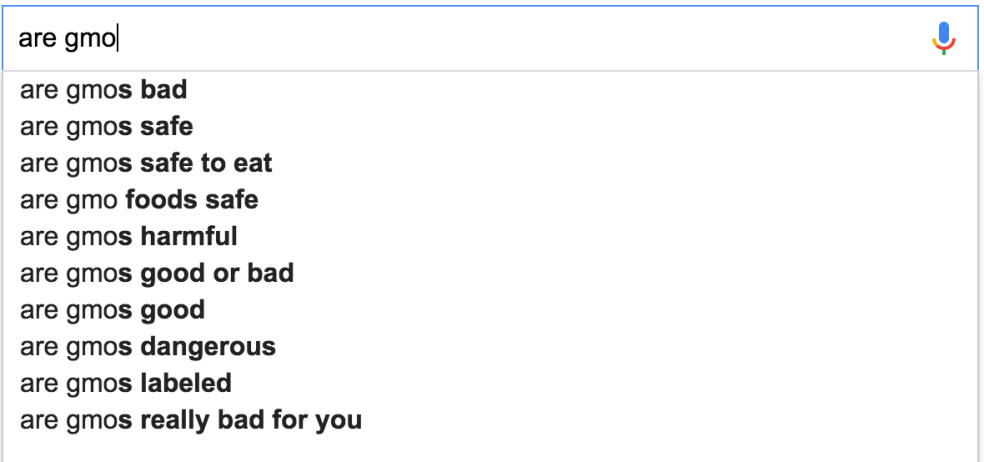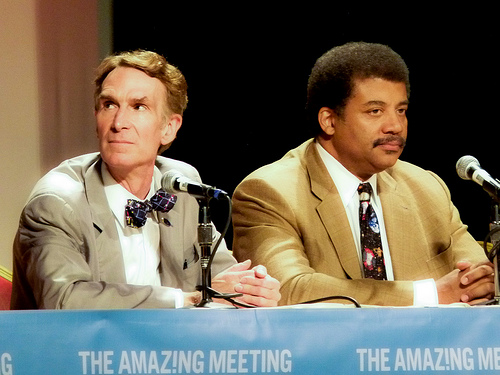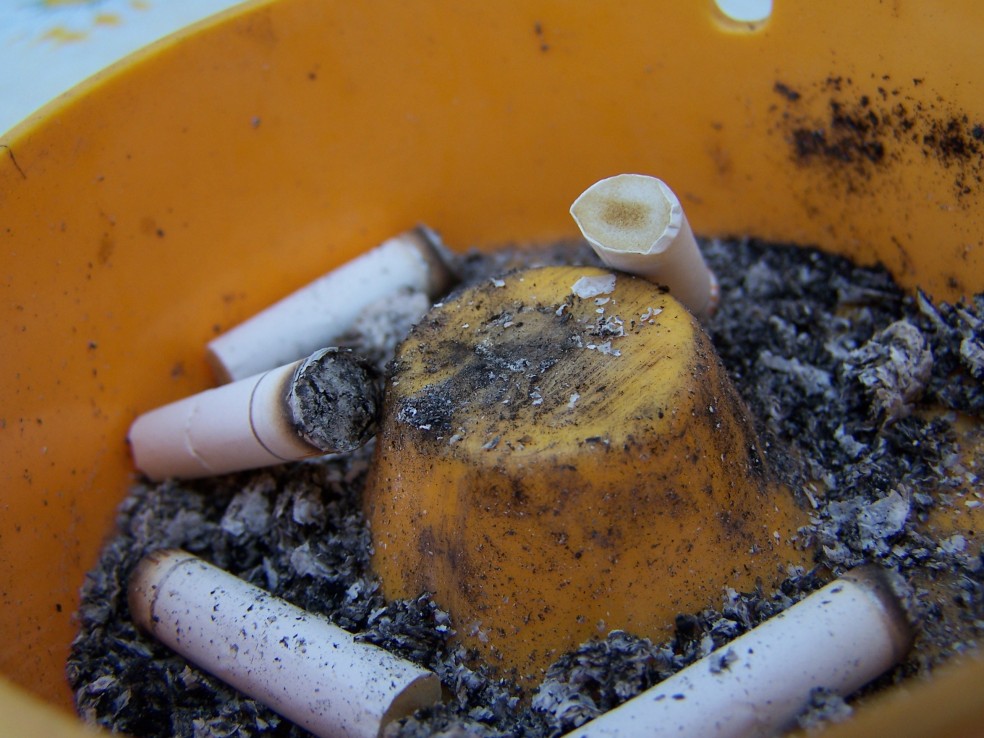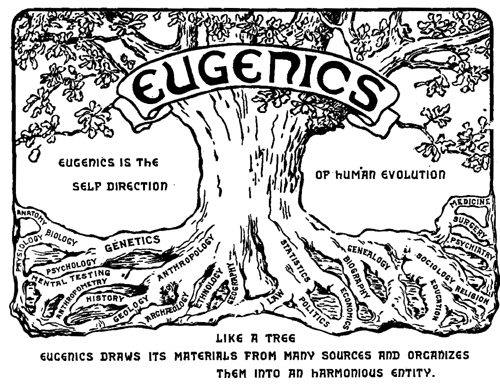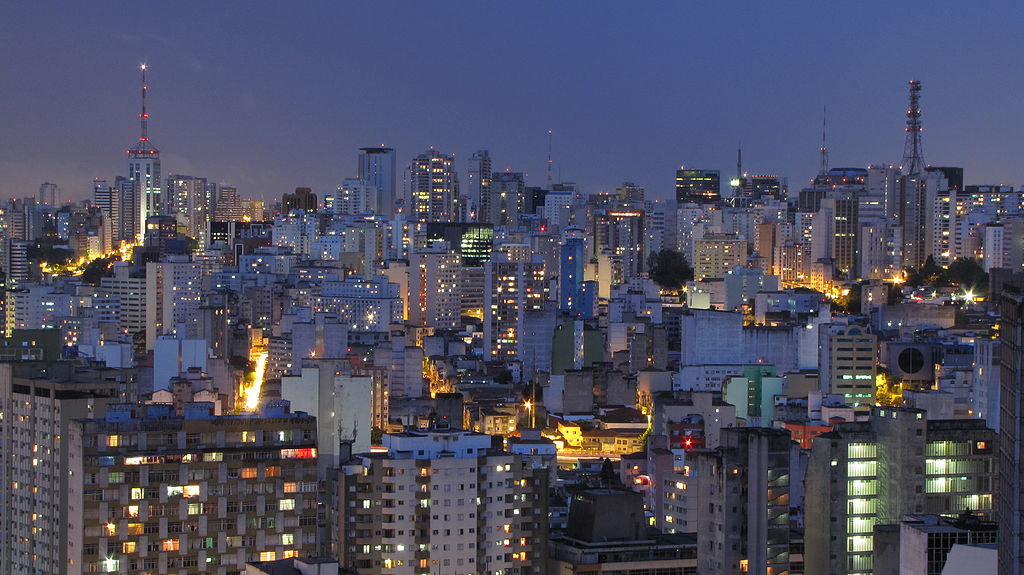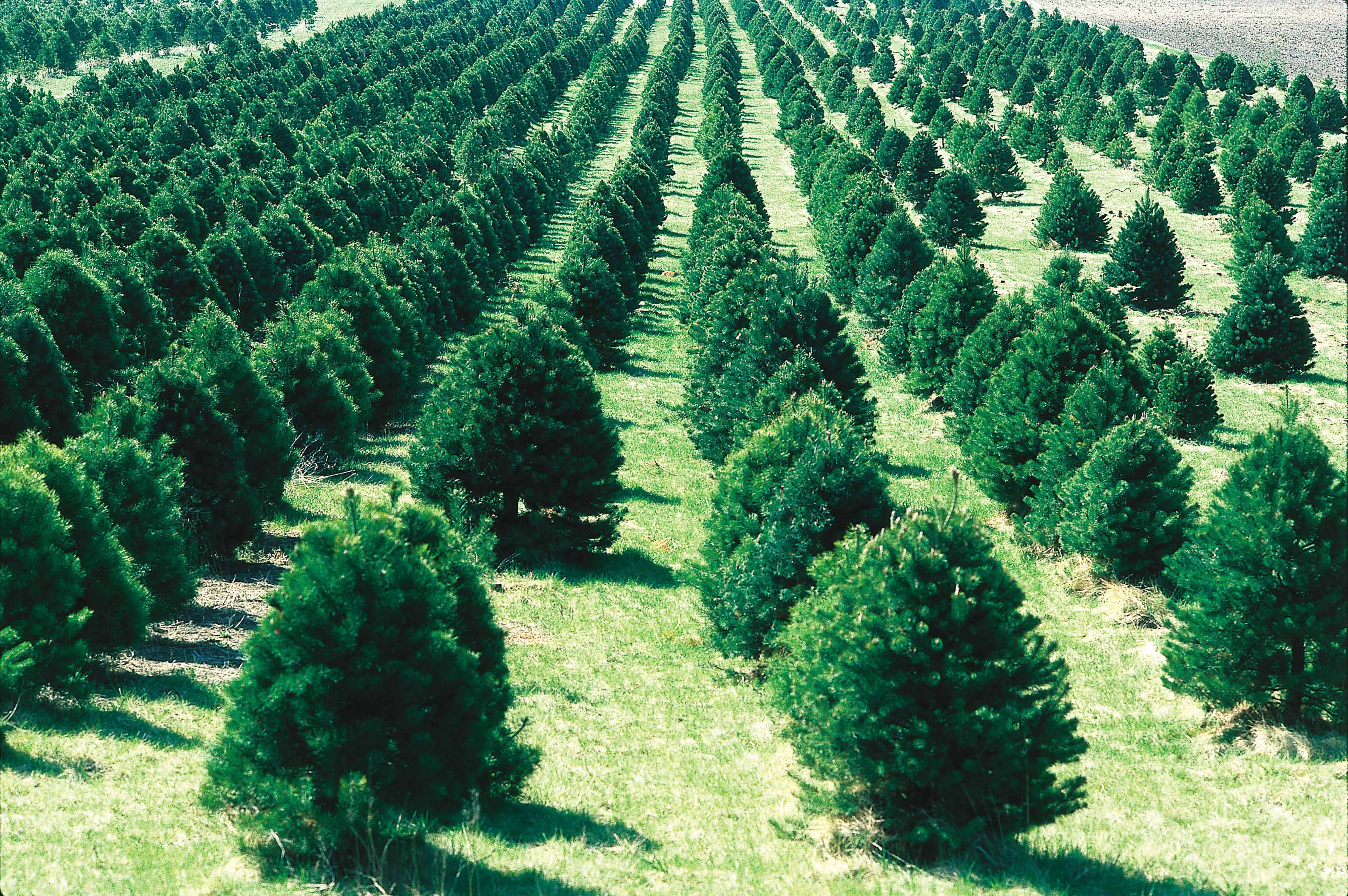What does it mean to sell out? Politicians are familiar with money’s corrupting influence, as we’ve seen in the media maelstrom surrounding the Clinton Foundation, Citizens United, and massive campaign donations from Wall Street and wealthy families. But for scientists trained to be objective, does selling out mean the same thing? Like politicians, scientists are not immune to money’s corrupting …
GMOs: An unhealthy debate
Almost all of us eat GMOs (Genetically Modified Organisms) every day, and most people question what that means for their health and the environment. But trying to get a straight answer to these basic questions about what we’re putting in our bodies can be a frustrating gantlet. Information about GMOs online is confusing and tendentious, with contradictory statements made by the pro- and anti-GMO camps. To the pro-GMO camp, concern about GMOs is …
Why scientists don’t engage with the public, and why they should
Featured image: Two great American science communicators. Photo credit: Jamie Bernstein Over the past months, I went to several scientific conferences* on a covert mission. While I was technically there to learn and to discuss my work, I wanted to find out why so many academics avoid engaging with the public about their research. I ambushed scientists at happy hours, …
Climbing down from the Ivory Tower
I have been fascinated by science since I was a young boy. As my long-suffering loved ones can attest, I’ve ruined many otherwise lovely dinners by droning on about agroecology, or sexual selection, or some damned thing. I’m not the only one failing to communicate science effectively. Science is widely perceived as a dull and difficult enterprise, working out esoteric details of irrelevant questions. Scientists …
At what point have problems been researched enough?
We are in a golden age of scientific technology. More so than ever before, scientists have the tools to decipher how the body works and how exposure to toxins affects our health. For instance, scientists can now understand why smoking tobacco can be so detrimental: They’ve examined the mechanisms of how smoking affects birthweight, changes the bacterial communities in the …
Scientific progress: untangling a Gordian knot
Last week, my first scientific paper was published. I was overwhelmed with excitement! Joy! Accomplishment! Recognition! And then I was reminded of the achingly slow and frustratingly incremental pace of scientific progress when untangling the Gordian knot of a complex problem. My paper, though big to me, represents a minute loosening of a tiny strand within that knot. The paper examines whether …
Resilience, Genetics, and GATTACA: A journey towards eugenics?
In the future, should we genotype children for resilience to provide them with better, targeted interventions to help them succeed? This is the underlying thesis of an opinion piece by Dr. Jay Belsky, published last Sunday in the New York Times. Dr. Belsky notes that much money is spent on interventions trying to help children succeed, and that the resilience of the children …
Our Slice of the Carbon Cycle: More with Less
Cover photo credit: Wikimedia user Coyau The picture is gloomy. Humans are consuming the Earth’s resources at an unsustainable clip, and the prospect of reducing that consumption seems remote at best. While global population growth is slowing, there are still more people every day. Each person is consuming more as people around the world get richer. Global trade is reaching deep into …
Our Slice of the Carbon Cycle: A Numbers Game
Photo: Sao Paulo at night by Julio Boaro At the dawn of the modern environmentalist movement, as we awoke to the devastating downsides of modern industrial life, our first and most obvious response was to cut back. If our voracious consumption of Earth’s bounty was hurting the environment, the thinking went, then we should probably trim that consumption. That logic is still sound. Reducing the amount of …
Our Slice of the Carbon Cycle: An Approach to Being Humans on Earth
We all want to leave a livable planet for future generations. In doing so, there are many priorities to juggle – protecting natural ecosystems, preserving biodiversity, and maintaining the “ecosystem services” that keep our air, water and soil clean. At a basic level, these seemingly unrelated priorities all center on the space we take up on this planet, and how we use it. There are other major environmental …
- Page 1 of 2
- 1
- 2


